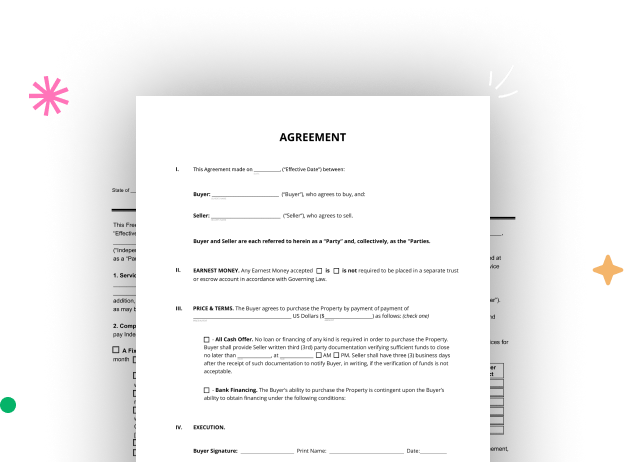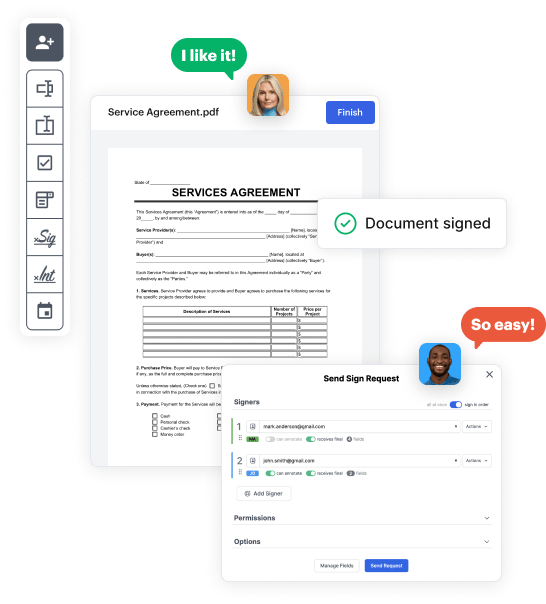

Begin signining into your DocHub account. Try out the advanced DocHub functionality at no cost for 30 days.
Once signed in, go to the DocHub dashboard. This is where you'll build your forms and handle your document workflow.
Click on New Document and select Create Blank Document to be taken to the form builder.
Use the DocHub features to add and arrange form fields like text areas, signature boxes, images, and others to your document.
Include necessary text, such as questions or instructions, using the text field to guide the users in your form.
Adjust the properties of each field, such as making them compulsory or arranging them according to the data you plan to collect. Designate recipients if applicable.
After you’ve managed to design the Adult Children Divorce Document, make a final review of your document. Then, save the form within DocHub, send it to your preferred location, or share it via a link or email.